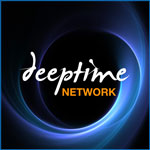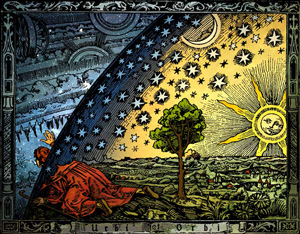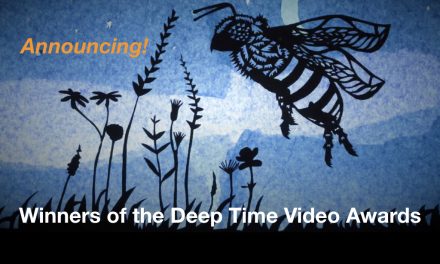A Sociological Perspective on Natural Theology
Link to File
This paper was published under the title “A Sociological Perspective on Natural Theology” in The Oxford Handbook of Natural Theology, Oxford University Press, Russell Re Manning ed. 2013.
Rivers and lakes around the world are drying up; people are fleeing cities where they literally cannot breathe the air. Millions are suffocating from poverty, sickness, oppression, and terror. Their souls cannot breathe, and time is running out on them, moment by moment.
The Stoic Seneca asked our question: “Would the deep flood of time run over us?” Time could run out on those who failed to breathe the Cosmic breath that connects all beings to each other. Time could also wash away all traces of every being. To be in the universe was to be in time. We are all diminished by the death of every bird, the drying up of every river, the implosion of every star.
Therefore to have time we have to understand and embrace our connection with the cosmos as a whole and everything and everyone in it. The universe itself is simply the expansion of time from a single, critical moment. That is still where we live and move and have our being: that single, fleeting, fateful moment that we must either seize or lose forever.
In the Gospel of Thomas, Jesus says “You read the face of the heavens and of the earth, yet you have not recognized that which is right in front of you and you do not know how to read this very moment.” That is all we have. One moment, one breath at a time, in which we are united by the cosmic breath to every other being that is struggling for air, for life, for time. How are we to seize this moment before it passes, forever?
The wisdom tradition, long before the emergence of any particular system of religious belief or practice, understood the uncertainty, even terror, at the open-endedness of life, and of any step forward into a time. We cannot know in advance or control even our own becoming in and through time. Through Stoicism and the Celtic tradition, the one central to Rome and the other at the margins of Roman culture, we have learned what it is to experience our own being in the context of an emergent universe permeated by the spirit of Being itself. The Stoic celebrated that through this understanding we can be assured that we have time; we, our very being is not running out of time. The Celt, on the other hand, celebrated that by rooting our being in the cosmos we have no time; we have a being that is in time but beyond its terrors. Deep Time may be an abyss, but it is also the source and end of our being.
- Used by people who call the work: Other ()
- Applies a deep time evolutionary perspective to: Religion/Spirituality
- Learning Stages: Adult Education, Higher Education, Lifelong
- Type: Document
- Keywords: Natural Theology
- File:https://dtnetwork.org/wp-content/uploads/2015/07/NATURAL-THEOLOGY-Chapter-31PDF1.pdf
- Posted By: Jennifer Morgan
- Date Added: July 10, 2015











Thank you for this valuable essay. The wisdom traditions you describe are very helpful as we try to articulate the wisdom in the story of the evolutionary universe and the associated discoveries of science in the recent couple of centuries.. A “New Story Group” that I belong to has read Cynthia Bourgeault’s book The Wisdom Way of Knowing and found that helpful as we seek to embed ourselves in the evolutionary universe story. I wonder if you have reflected on the work of Thomas Berry and Brian Swimme from the perspective of your knowledge of wisdom traditions. Their work it… Read more »
Dear Mary, Thank you for responding to my short article. I hope to read Bourgeault’s book. She comes highly recommended by you and a few others, and I will soon catch up with you, I hope, in reading Berry and Swimme. You are way ahead of me.
Do get in touch with me if you have any thoughts to share coming out of your New Study Group.
Do you find them comforting? Do they raise questions that make you wonder if time is on our side,from an evolutionary perspective?
Please keep in touch.
Thanks again for writing,,Dick
Mr. Fenn, Thanks for this very interesting article. It struck all kinds of responsive cords. I’ve spent much of my life working with indigenous peoples in the Arctic. The concept of a natural theology and a revelatory universe is still very much alive with them. In many respects this is much of what we re trying to regain. On a number of occasions Thomas Berry noted the need to rediscover some of the elements that we disparagingly refer to as “paganism.” The references to a holistic concept of earth and the links of the human soul to the Earth Soul… Read more »
Dear Mike,You are capturing that strange pair of feelings and convictions that links to an archaic world: a sense of deep connection to a universe that is always far beyond us, was there before us, and we hope will be thereafter us; and yet also a deep uncertainty about whether time is on our side, or whether our last remains will be washed away.I suspect you have looked hard and long at the water-stones that cover Neolithic tombs. They are huge, enduring, and have been hauled from miles to cover a sacred place, and yet the stones them,selves show the… Read more »
Hi Dick, Thanks for your comments. In response to your questions, I’m not writing about time directly but do write about time in relation to cosmogenesis. As Berry and Swimme have noted “We are moving from a dominant spatial mode of consciousness where time is perceived as moving in ever-renewing seasonal cycles to a mode of consciousness where the universe is perceived as an irreversible sequence of transformations.” (The Universe Story p. 223) This new consciousness is essential in dealing with the Anthropocene. For my work in the Arctic “time” has played out in hermeneutics. When Inuit and Dene experienced… Read more »
Dear Mike, Thank you for responding. Sorry to delay in responding to you. In the meantime I have had a chance to read your creful and evocative work on functional cosmology, and it is much on my mind as I am responding to you now. I am also aware that you are 77, and that you know declining systems when you see them, and that you may be living in a valley on one of those declining systems, and that you want to do something about that. But I am not sure that that is your context. It is certainly… Read more »
Hi Dick, Thanks for your response. It raises many questions and it would take me a long time to answer all of them. So let me focus on the one I think is most significant—my concept of time. My concept of time has been strongly influenced by four things—my relationship with Thomas Berry and his thinking, my work with indigenous cultures in the Arctic and my interest in both theology and communications. I think of time as an essential element of a larger context. I don’t see myself living “in time” as much as I see myself living “with time.”… Read more »